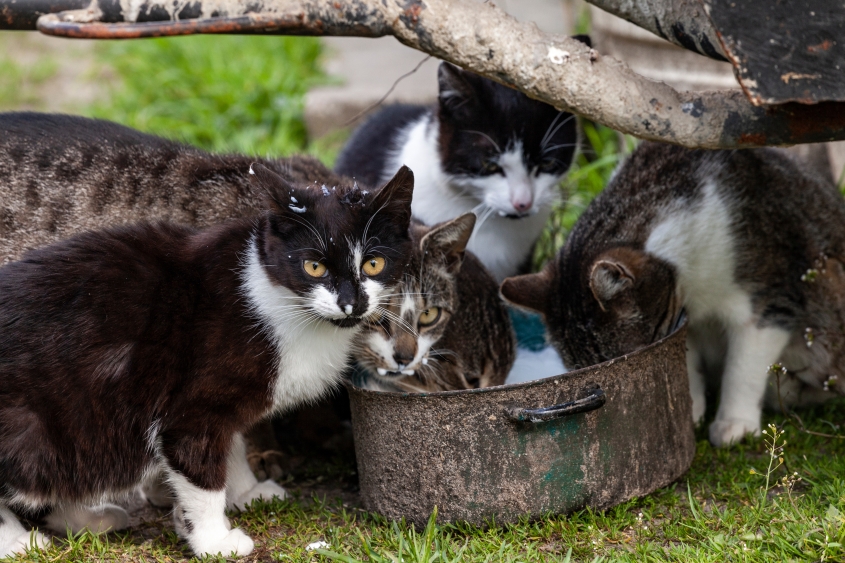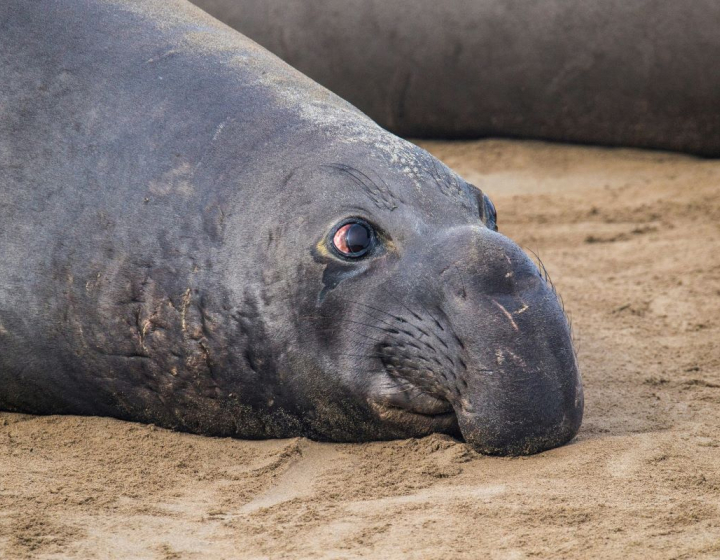H5N1 Avian Influenza (bird flu)
Highly Pathogenic Avian Influenza (HPAI) and your companion animals
What is H5N1?
H5N1, commonly known as avian influenza A or bird flu, is a highly pathogenic strain of influenza virus that primarily affects birds, but cases have recently been reported in wildlife, cattle, cats, and humans.
What do we know about the latest outbreak?
Cats: Recently, H5N1 influenza cases have been reported in cats that have consumed contaminated commercial raw food diets, unpasteurized milk, or had contact with wild birds and cattle.
Dogs: Although dogs are susceptible to H5N1, there have not been cases of dogs becoming clinically ill or succumbing from the disease. Still, it’s helpful to stay up to date on vaccines, know the signs, and stay informed.
Avian influenza (H5N1) is separate from the canine respiratory illness that has been reported in some areas of the country. H5N1 is a virus that primarily affects birds, though it has also been reported infrequently in other species. The canine respiratory syndrome is caused by several viruses and bacteria and there is no known link to avian influenza.
Precautions:
Consider discontinuing your pet’s raw diet. Even if their raw food is human grade, frozen, or freeze dried, this does not prevent the potential spread of pathogenic bacteria, parasites, or H5N1 that may be present in the food. Consider cooking your pet’s raw food and/or consulting your veterinarian about diet change.
Limit your pet’s access to wild birds that may be carrying the virus, and avoid giving raw milk to cats.
What are the symptoms to watch out for in our pets?
Clinical signs in pets may include the following:
- Loss of appetite
- Lethargy
- Fever
- Neurologic signs (incoordination, circling, tremors, seizures, sudden blindness)
- Copious eye or nasal discharge
- Difficulty breathing
We recommend seeking veterinary care if your your pet shows any of these signs. If he/she is having any life-threatening symptoms (neurologic signs, seizures, difficulty breathing, or collapse) seek veterinary care immediately.
Can this cause illness in humans?
Yes, H5N1 can cause illness in humans. Current human infections have been linked to contact with infected cattle, poultry, and wild birds. There is no current evidence of human to human transmission.
What is being done?
The Center for Disease Control (CDC), Food and Drug Administration, (FDA) and U.S. Department of Agriculture, (USDA) are closely monitoring cases as they develop. One voluntary product recall has been issued for contaminated raw food diets for cats & dogs. We are continuing to monitor this emerging virus.
Resources and Animal Health Center partners
- Animal Health Diagnostic Center
- Cornell Richard P. Riney Canine Health Center
- Cornell Feline Health Center
- Cornell K. Lisa Yang Center for Wildlife Health
- Cornell Wildlife Health Lab
Follow our animal health centers' social media accounts for regular updates.






